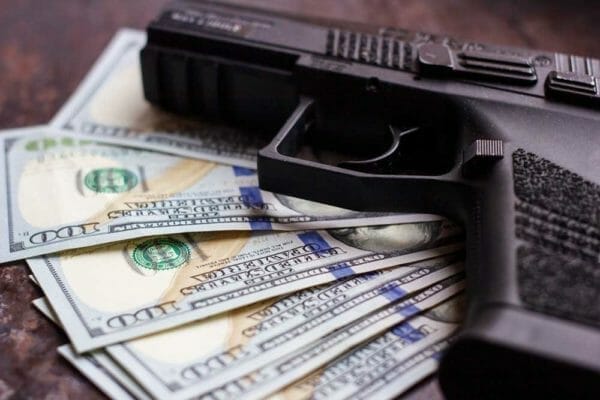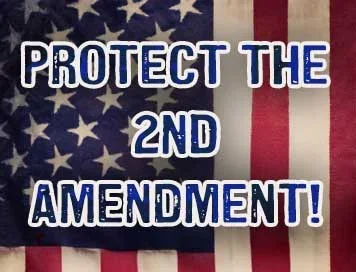
U.S.A. –-(AmmoLand.com)-— In March of this year, a three-judge panel of the United States Court of Appeals for the Fourth Circuit heard oral arguments in the appeal of Maryland Shall Issue v Hogan.
The case of Maryland Shall Issue v Hogan (Governor of Maryland), has been in the courts since 2013, when the case was filed in the United States District Court for the District of Maryland. In 2013, Maryland passed the Firearm Safety Act of 2013, which contained a Handgun Qualification License (HQL) provision which forbids the sale, transfer, rental, purchase, or receipt of a handgun by any person who does not have a valid HQL license. Shall Issue Maryland and several other plaintiffs challenged the law on Second Amendment, Fourteenth Amendment, and other grounds.
The District court held the plaintiffs lacked standing. Shall Issue Maryland appealed the case to the Fourth Circuit. A three-judge panel on the Fourth Circuit reversed the District ruling and remanded the case back to the District Court.
The District Court, on remand, decided the case under intermediate scrutiny and granted the State of Maryland summary judgment. Shall Issue Maryland appealed the case to the Fourth Circuit for the second time.
On June 22, 2022, the Supreme Court of the United States published the opinion in the case known as Bruen, giving clarification of the Heller decision and clear instructions for lower courts to use in determining if statutes violated rights protected by the Second Amendment. Bruen ruled means-ends tests were inappropriate, and there should not be different levels of scrutiny in Second Amendment cases.
Every court which has examined the Maryland Shall Issue v Hogan case has found the HQL provisions burden conduct protected by the Second Amendment. The District Court found it did; the first three judge panel did, and the District Court on remand did so. In Bruen, the Supreme Court of the United States found if the statute burdened conduct protected by the Second Amendment, it is the burden of the State to show such burdens were common and accepted at the time the Second Amendment was ratified. To a lesser extent, what happened at the time of the ratification of the Fourteenth Amendment is applicable. Anything after 1900 is clearly too late to be considered a historical context.
Maryland had no burdens on handgun purchase or ownership until 1941. In 1996, Maryland passed the “Gun Violence Act of 1996”, which required all handgun transfers to be registered with the state, private or commercial. Additional requirements were passed in 2013. The HQL requirements passed in 2013 include fees, training, and background checks before a person is allowed to purchase a handgun.
The oral arguments in the appeal of Maryland Shall Issue v Hogan were heard on March 10, 2023.
According to Jurist.org, two of the three judges appeared to agree there was no historical tradition of requiring fees, training, or background checks before someone is allowed to purchase a handgun. During questioning by the judges, Maryland Assistant Attorney General Ryan Dietrich had to admit there was no historical precedent for a requirement for pre-clearance to purchase a firearm.
Dietrich eventually conceded, “We were unable to find any that required advance permission,” to the republican-majority three judge panel.
At courthousenews.com, it was reported one of the two judges, Circuit Judge Julius N. Richardson, took issue with Maryland’s use of statistics. Maryland contends gun-related murders decreased after the law went into effect. Richardson asked why did they exclude data from Baltimore City/County, which has most of the murders in the state? Assistant AG Dietrich replied it was because of the increase in murders in Baltimore City/County.
Dietrich said the reason for leaving Baltimore out of the statistic was the uptick in crime associated with the 2015 police killing of Freddie Gray.
“It seems odd to say it is associated with a decrease in these three counties, but 70% of murders happen in Baltimore City-County,” Richardson said. “The murder rate is higher in 2020 than it was in 2015.”
The increase or decrease in murders is not germane to the case under the standards set forth in Bruen. Bruen ruled out mean-ends testing for the Second Amendment, as for other rights protected in the Bill of Rights.
About Dean Weingarten:
Dean Weingarten has been a peace officer, a military officer, was on the University of Wisconsin Pistol Team for four years, and was first certified to teach firearms safety in 1973. He taught the Arizona concealed carry course for fifteen years until the goal of Constitutional Carry was attained. He has degrees in meteorology and mining engineering, and retired from the Department of Defense after a 30 year career in Army Research, Development, Testing, and Evaluation.









I live in West Virginia. Travel to the east in our state often comes very close to Maryland. If you leave the interstate to access a Restaurant/Gas Station you end up in Maryland. I never travel without my pistol. I am a CCL holder in WV. This brief stop to refuel my Car and my Stomach can potentially expose me to a Felony Arrest! Our WV State AG (Former Maryland Resident) has continually approached his counterpart in Maryland in regards to some sort of Reciprocity Agreement. This of course has fallen on deaf ears…..Our other border states like Ohio-Kentucky-North Carolina-Tennesee-Pennsylvania… Read more »
It appears that Maryland’s “Gun Violence Act of 1996” is in violation of 18 USC § 926 (a)(3) as modified in 1986. Note that the prohibition of any new registry covers the entirety of “Chapter 44 – FIREARMS”, which is sections 921-934, and every State or subdivision thereof. “No such rule or regulation prescribed after the date of the enactment of the Firearms Owners’ Protection Act may require that records required to be maintained under this chapter or any portion of the contents of such records, be recorded at or transferred to a facility owned, managed, or controlled by the… Read more »
Shall not be infringed seems so simple. But politicians and courts have complicated the heck out of it.
An interesting exchange begins at approx. 43:30 – Initially it is a question from the bench as to whether requiring a fingerprint to identify oneself to qualify to purchase a firearm “would necessarily violate the 2nd Amendment”. And, it quickly evolves to a discussion begun by another judge as: “What if the law required fingerprinting to determine whether or not you were prohibited by law from possessing a firearm … such as a prior felony conviction ? And, what if you were required to just bring that up to the counter to show that you passed the fingerprint check,… Read more »
The law is the text… It is extremely clear. Historical tradition is a cop out by SCOTUS to allow nonstop litigation… Bruen was not a good ruling. It should have put a complete dead stop to state and local gun laws. The second amendment is a federally protected right of the citizens of the USA (not state residents)and is not subject to modification by state and local governments. The only way to modify it is thru a joint resolution in congress with 2/3rds vote or by 2/3rds of the state legislatures in an organized effort. Gun owners need and deserve… Read more »
Americans do not need permission, and the government is not empowered to have any authority over citizens’ choice of firearms. No permit, license or registration is necessary per the 2nd which prohibits government infringement on the right to keep and bear arms.